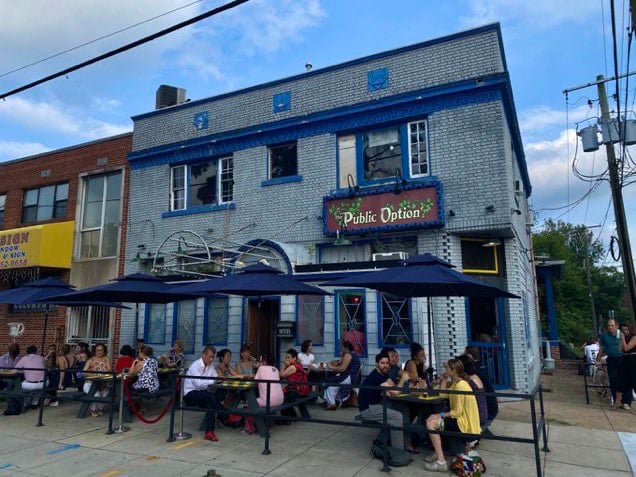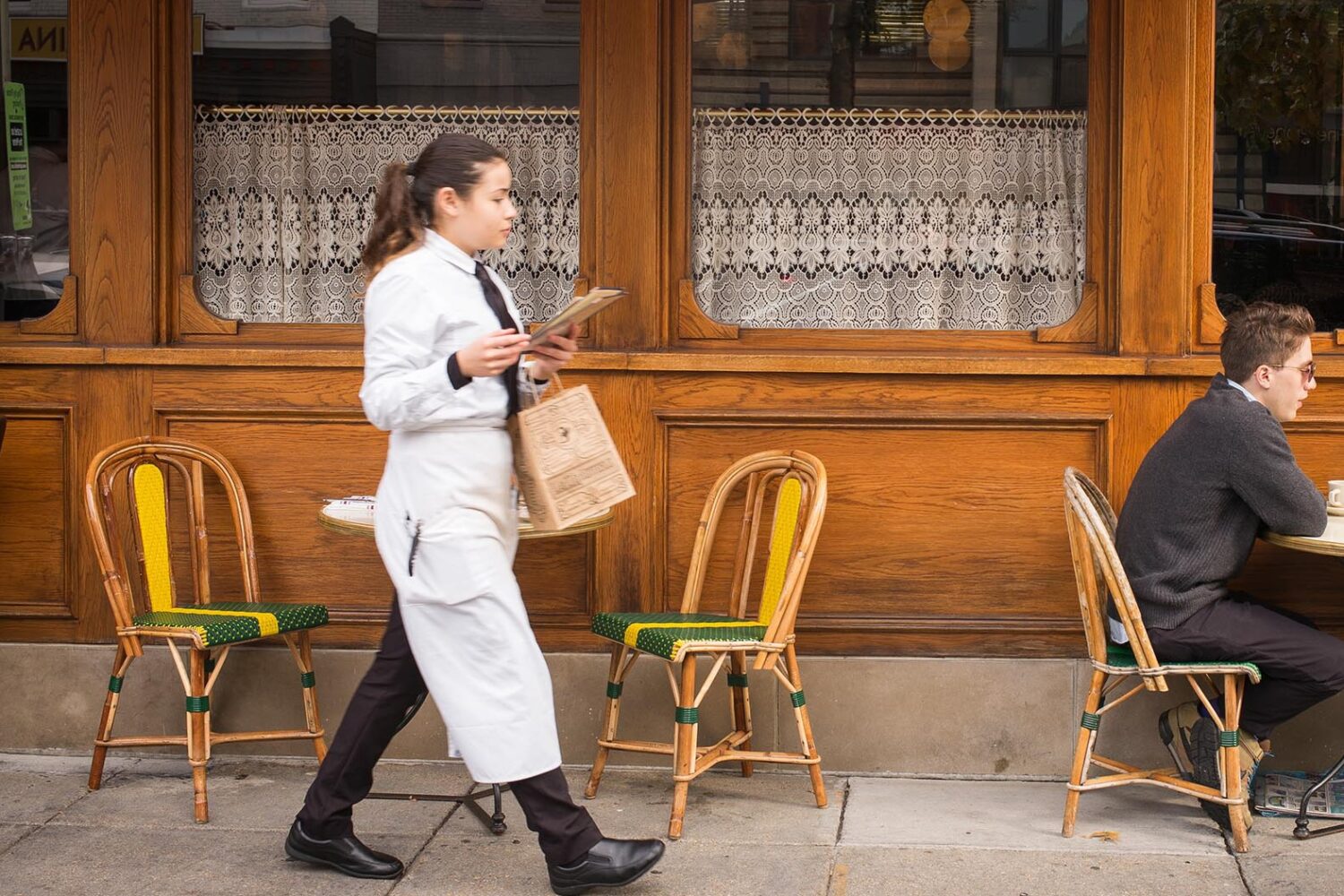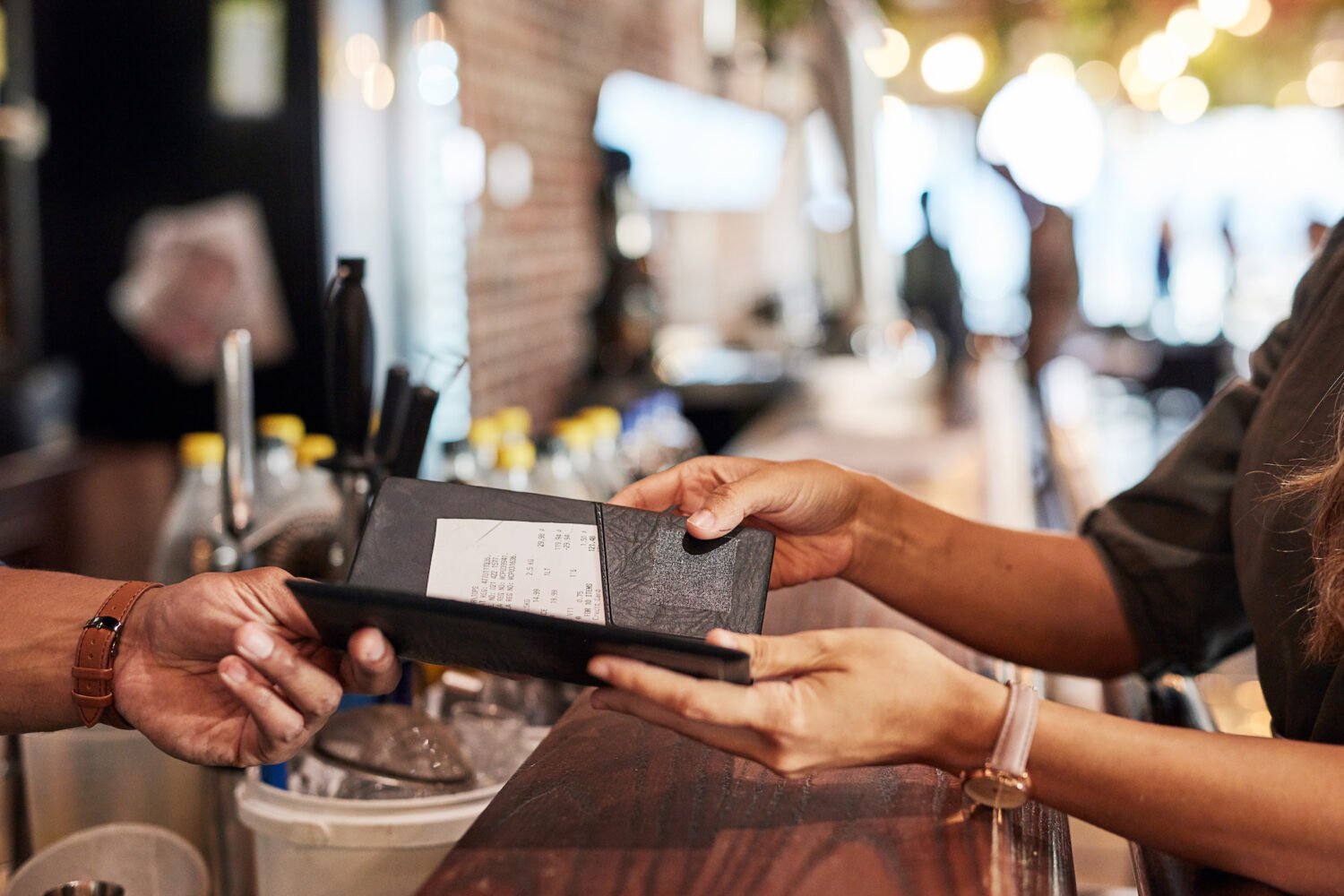When Northeast DC brewpub the Public Option opened in 2014, owner Bill Perry did something that was pretty much unheard of in DC at the time. He paid his bartenders a base wage of $15 an hour and did away with tipping altogether. If someone left behind some cash, it was donated to charity.
“We are uncomfortable with the dynamic that is created by tipping,” Perry said at the time. “We may end up crashing and burning, but we’re going to give it a try.”
Now a DC ballot measure, Initiative 82, proposes to incrementally eliminate the tipped minimum wage—a system by which gratuities subsidize the majority of service employees’ pay. While the initiative doesn’t ban tipping, it could force every other bar and restaurant in town to operate with the higher minimum-wage model championed by the Public Option. Except that in the aftermath of the pandemic, the Langdon neighborhood bar has abandoned that model. In the run-up to the November 8 election, the bar has set out flyers encouraging people to vote “no” on Initiative 82.
Perry, to be clear, still believes in his original no-tipping, livable wage model. He’d raised employees’ base pay to $20 an hour before the pandemic. But then the business shut down for more than a year. As Perry and his wife Cathy Huben prepared to reopen it in mid-2021, they recruited the Pug owner Tony Tomelden and bartender Travis Briggs to manage the operation. The new team wanted to switch to a more traditional pay system, where DC tipped employees make $5.35 an hour and then earn the rest of their wage (and often much more) in tips. Perry acquiesced; If they were going to manage the place, he wanted them to run it the way they thought best.
“I’m not telling them which beers they want to have on tap, nor am I telling them which political views they ought to have,” Perry says. “I’m not going to get in the way of people who have the boots on the ground.”
Briggs, who has a day job as a physical oceanographer for NOAA, first started working at the Public Option part-time in 2017. It was his first job in the hospitality industry so he didn’t have much to compare it to, but he eventually began to feel that the business model wasn’t sustainable.
“I think no one really questioned it at the time,” Briggs says. “Because we’re open so few hours, no one was really relying on it for income.” When he took over as general manager during the bar’s reopening, Briggs made it his mission to get the business on better financial footing. Switching to a tipped wage was “one of the easiest things to do.” The brewpub also opened an art space upstairs and now hosts music events. Employee wages have increased to an average of $30 to $35 an hour.
“When I look at Initiative 82 and how it’s going to affect our business, I only see it negatively affecting it—the business itself and the employees,” Briggs says.
A big part of the debate over Initiative 82 has hinged on differing views of what it’s really like to be a tipped worker. The “no” camp argues that Initiative 82 aims to fix a problem that doesn’t exist, and that the majority of tipped employees in restaurants make well over the minimum wage. Proponents, however, say that the majority—often people of color and immigrants—work in casual restaurants, or places like nail salons and car washes, where they earn low wages and are vulnerable to wage theft.
Perry’s own views offer a glimpse of just how complicated and fraught the debate over Initiative 82 has become. He sees a pay model dependent on tipping as a source of financial unpredictability and discrimination for workers—a “real flaw in the industry.” At the same time, he worries that a lot of bars and restaurants might close if Initiative 82 passes, putting many employees out of work. He voted “no” on Initiative 77—the 2018 ballot initiative to eliminate the tipped wage that passed but was overturned by the DC Council. He says he’s undecided on Initiative 82: “I believe in it philosophically, but don’t know if my philosophical beliefs are enough to be part of disrupting a large industry.”
Perry’s approach had always been to lead by example: If his business thrived, others would want to follow suit. But he also notes that the Public Option isn’t like a lot of its peers. It was only open three days a week (now five), and its handful of employees are all part-time. “Who am I to impose my views?,” he says.
At the same time, an increasing number of business owners have started share his view on one livable wage, especially in the wake of the pandemic. Advocacy group One Fair Wage has tracked more than 100 DC restaurants that have eliminated a tipped wage in favor of a higher base wage. Many have implemented a service charge to make up for the increased labor costs. Hardly any of them, however, have given up the option for customers to leave tips.
If Initiative 82 passes, the Public Option isn’t planning to revert back to its no-tipping model either. “I don’t think I’d ever take that away,” Briggs says. “I always want my employees to make as much money as possible.”


















